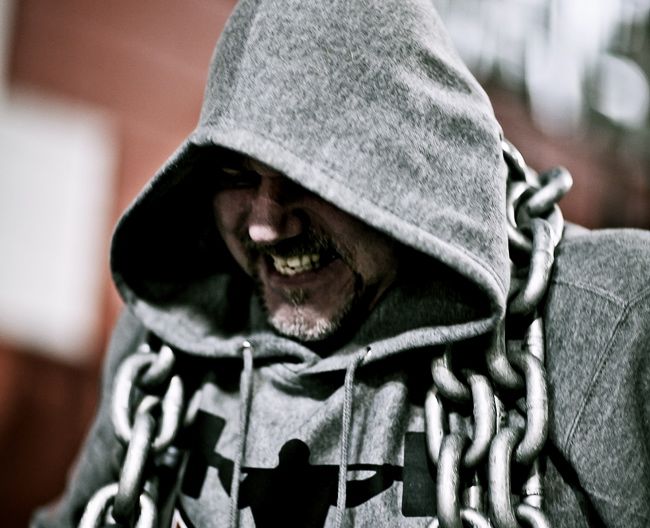
"When the student is ready, the master appears." ~Buddhist Proverb
"I find four great classes of students: The dumb who stay dumb. The dumb who become wise. The wise who go dumb. The wise who remain wise." ~Martin H. Fischer
Bet you didn't know I was one semester away from graduating with a Sociology degree before changing my major to Exercise Science and Nutrition. While there's a good story on how this all came about, it's not the focus of this article. I did pick up a few things in those years that have carried over to the gym and business. One of the most valuable is Abraham Maslow's Four Stages of Learning. In case you are wounding what this has to do with squatting or business, follow along.
The four stages of learning (also known as the four strings of competence) are:
1. Unconscious Incompetence - You don't know you have no idea.
2. Conscious Incompetence - You know you don't know
3. Conscious Competence - You know but need to concentrate on it.
4. Unconscious Competence - The skill is second nature - automatic.
How does this relate to squatting?
Unconscious Incompetence
When someone first walks into the weight room and squats for the first time, they have no idea that the movement is a skill, as much as it is an exercise. This happens to make up most of the people we all see squatting in gyms and most of the YouTube videos we see. From a coaching standpoint, these people are VERY hard to work with because they have no idea what they are doing is messed up. They may even think what they are doing is right, and more importantly they may not care that they are doing it wrong. If you are a coach and run across these lifters (and you do ALL the time) the best way to teach them is for them to see it being done correctly. The main thing is to just make them aware that what they're doing can be improved. Letting them know why it's wrong and what they can expect out of doing it right will go a long way. The more specific it is to their goals, the more "awareness" they will gain. If it is a Powerlifter, they'll need to know how this will make their squat stronger. If it's an athlete, they'll need to know how it will help their performance, if it's a regular Joe, they may want to know how it is safer to do it right. Everyone has different reasons and goals and it is up to the coach/trainer to figure these out, but never assume your reasons and goals are the same as those you are coaching.
Conscious Incompetence
Once you make them "aware", they move to the next stage and that is knowing they don't know. Now when they squat they are "aware" they need to change things and will be more inclined to listen and respond to verbal cues. Not only will they respond better to these cues but they can be vital in the learning process. Every set and every rep should be coached and reinforced. The more senses you can bring in, the better the process will be. Some people are visual learners while other respond better to audio. Regardless, proper technique needs to be drilled in their head. Just think about this outside the context of squatting. Think of the number of people you know that would be SO much easier to deal with if they understood that they don't know what they think they do.
Conscious Competence
At this stage they know how to squat, and instead of you telling them what to do, they already know and tell themselves as they're doing it. As they get under the bar, they're thinking to arch the bar out. When they begin to descend, they're thinking to push their knees out and sit back. They know how to do it right. They need to really focus to do it, but they can do it.
Unconscious Competence
This is when they no longer need to focus on the basic stuff because it has all become automatic. This isn't to say they longer need to be coached or reinforced, it just means that in normal circumstances, their technique is automatic. This also takes years and thousands of reps to accomplish, so what normally happens is that although their form is automatic, the circumstances change. They may have moved up (or down) a weight class and leverages have changed, injuries may have caused a shift in technique, and a slight lapse in mental focus with maximal weights can lead to technique being impaired. The goal of any skill is to get to this level, because if the basic's are automatic, more focus can be put into recovery and growth.
To illustrate, you've become a squat technician and no longer have to tell yourself to arch, sit back, etc. This is all automatic. This frees your mind and ability to better respond to the unseen. So now if you feel yourself begin to fall forward, it's much easier to arch harder to get the bar back in line. If you feel your gear binding up too much in the hole, you'll be better prepared to push your knees out more to allow for a few more inches of depth.
The biggest take away from this phase is for you to understand that there are MANY outside circumstances that affect technique. You realize that it's not just how you do the movement, but all the training that affects the movement, your metal state, your injury history, your gear, and hundreds of other variables.
You learned your skill, but more importantly you learned that is only the beginning of mastery - not the end.








